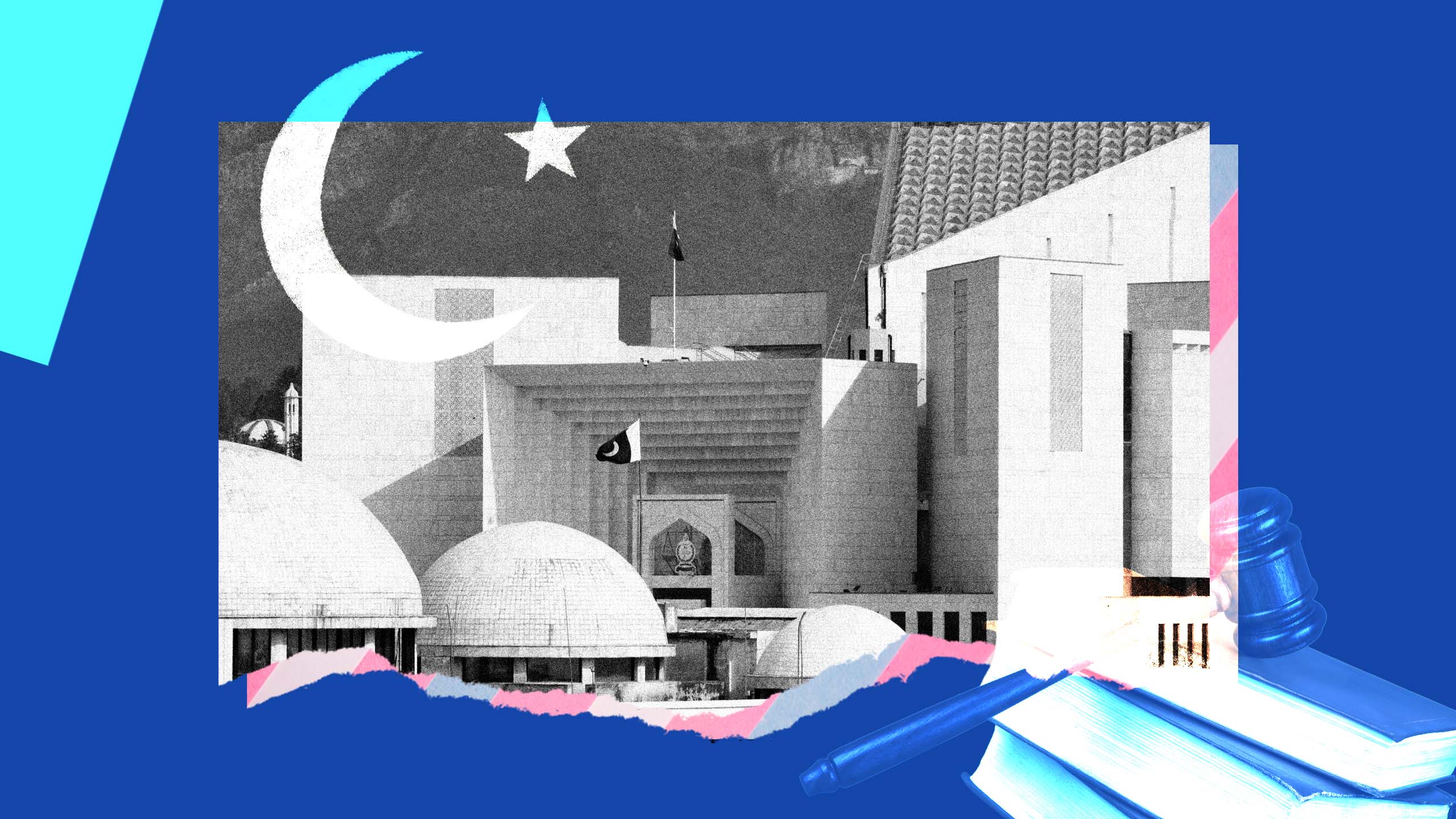Earlier this week, a senator from Pakistan’s largest religious party filed a petition to rescind protections for trans people in the country—leaving trans rights advocates extremely concerned.
The petition, filed last Sunday in the Federal Shariat Court by the Jamaat-e-Islami Party, argues that Pakistan’s 2018 Transgender Rights Bill went against the country’s Islamic principles. Senator Mushtaq Ahmed argues in the petition that the landmark bill interferes with Islamic heredity laws, which are based on gender identity.
Islamic jurisdiction in Pakistan dictates that women receive half the inheritance share of their brothers if they inherit from the same parent. Ahmed claims that trans people changing their genders nullifies this heredity clause. He also suggested to acting chief justice Syed Muhammad Anwer during the hearing that people who wish to change their gender marker should undergo a medical test first, though he did not clarify what exactly the test would entail.
Speaking at the hearing, trans human rights activist Nayab Ali emphasized the necessity of the bill by highlighting growing threats against the trans community in recent years. She called for the court to issue an order that would restrain any actions against any trans person until the case is decided.
Fellow trans activist Bubbli Malik also testified on the necessity of assistance from “gender experts” who could speak to the importance of the protections if the bill were to be reviewed.
Trans rights advocates say that the Jamaat-e-Islami party is extremely anti-LGBTQ+ and believes queer people threaten the social order. In a 2013 statement, the party said that LGBTQ+ people “upset” the “social balance of society,” and that same-sex unions “violate” the “well-defined roles in a society and family” of men and women. “Legalizing homosexual unions today would open the floodgates for euthanasia, incest and whatnot,” the statement noted.
This is not the first time Sen. Ahmed has attempted to derail the bill. Earlier this month, he presented a bill for amendments to the Transgender Rights bill in front of the Senate Standing Committee on Human Rights. In the session, he suggested that people who file a gender change request must undergo a medical test first. It is not a current requirement for gender change under the Transgender Rights bill. The authority to identify one’s gender should be with the medical board and not with the individual, he said at the time.
“Transgender is an American term, it has no place in Islam, and the legislation regarding the transgender community is against Quran and Sunnah, and it will promote homosexuality,” Ahmed said in his speech, further suggesting that the Islamic Ideological Council and the Muftis should be specially invited to make a decision on the proposed amendments.
The Ministry of Human Rights (MoHR) ultimately opposed the senator’s amendments, while the Islamabad administration supported the amendments. The ministry has plans to start an awareness campaign on trans rights soon, in collaboration with the National Database Registration Authority (NADRA). A working group with representatives from the government and civil society has been formed to hold sessions across Pakistan to educate citizens on trans people’s rights.
The 2018 Transgender Rights Bill, which was signed into law in May 2018 after years of advocacy from trans activists, recognizes trans people’s rights to be referred to by “self-perceived” gender. It allows trans people to get ID documents from NADRA and allows them to update their gender markers on their existing documents.
The bill also protects trans people’s right to access education, healthcare, public facilities and safe spaces for gender nonconforming people. Nayab Ali’s Khawaja Sira Quran School, a place where trans people can learn the Quran in a supportive environment and seek refuge, is one such safe space. The bill also includes protections for incarcerated trans people, for the inheritance rights of trans people and for the rights of trans people to hold public office under their self-identified gender.
But even with the 2018 bill in place, trans people in Pakistan still face major challenges. A study published in 2019 found the illiteracy rate in the trans community to be nearly 40 percent. Trans rights activist Farzana Riaz believes that at least 91 trans women in Pakistan have been murdered since 2015, and activists believe that at least 1,500 trans individuals have been raped in the last four to five years.


 Why you can trust Xtra
Why you can trust Xtra


